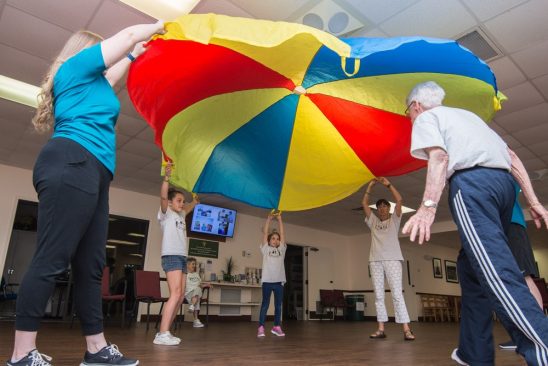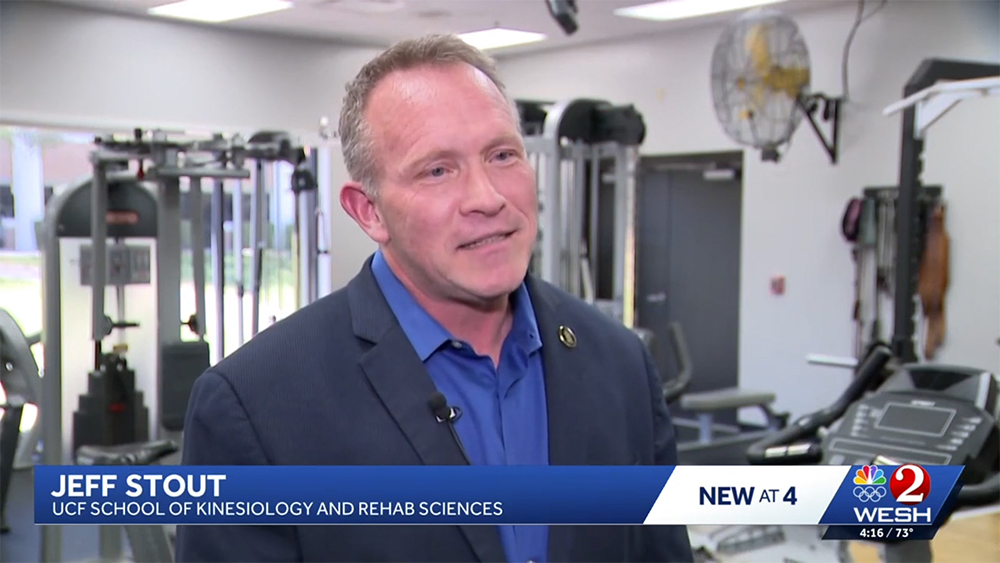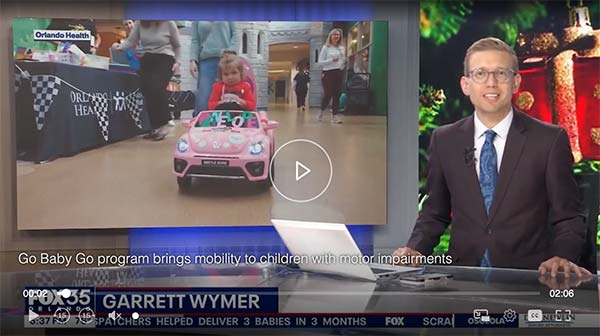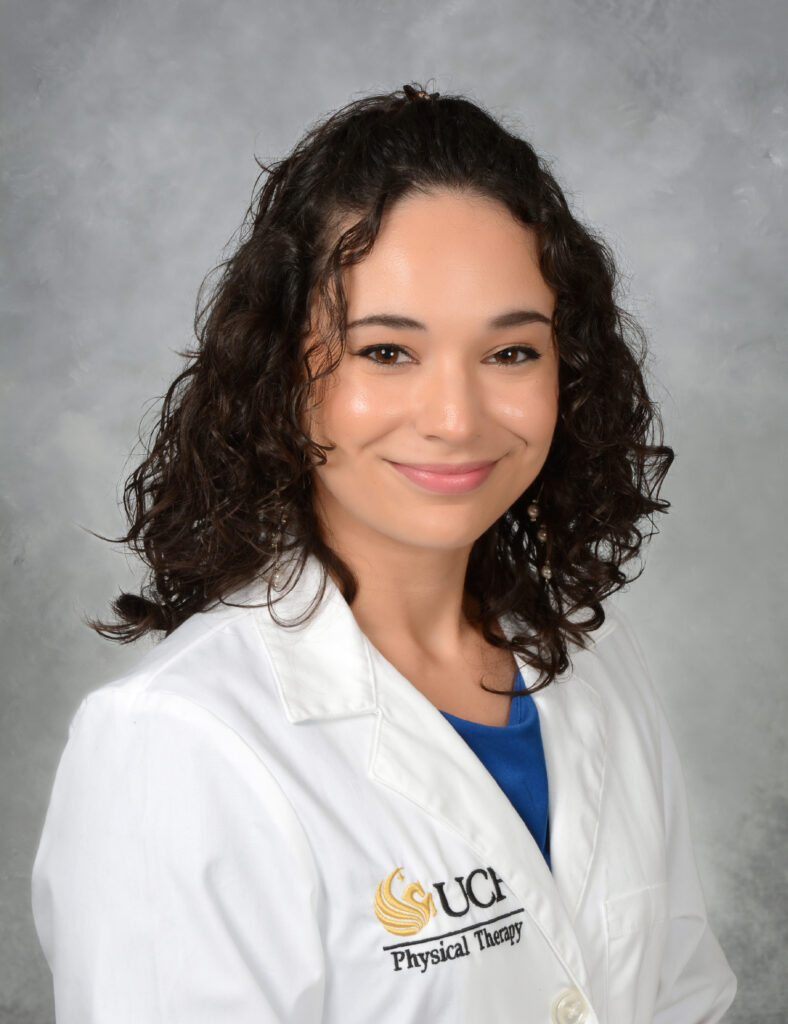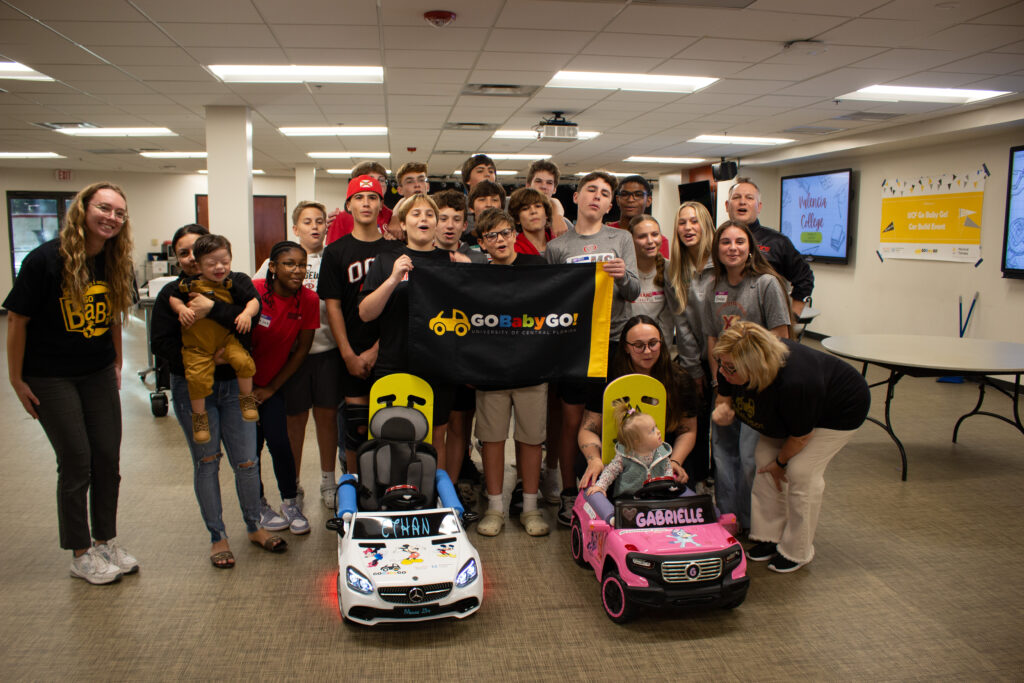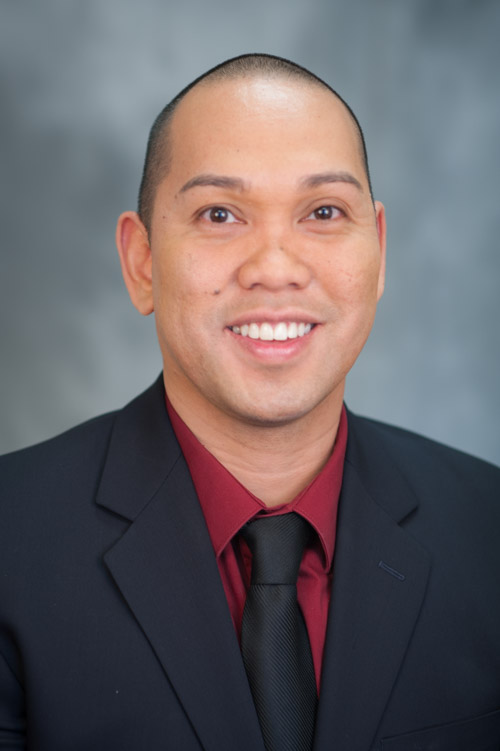A new program that gets seniors and children exercising together is happening in the community thanks to two physical-therapy faculty members at the University of Central Florida.
Grow and Play is an eight-week program designed by Jennifer Tucker and Nicole Dawson that pairs seniors averaging 80 years old and children averaging 9 years old to play games together such as Duck Duck Goose, Egg on a Spoon, Sly Fox, Monkey in the Middle and more. The goal is for participants to become more active and to have positive social experiences, where the adults feel a greater sense of wellbeing and purpose by helping the children, and the kids learn more about aging.
“So far what we’re seeing is really positive,” said Dawson, an assistant professor of physical therapy. “We feel if you can enhance the intergenerational bond, you can enhance the community.”
Grow and Play began June 5 and will conclude July 26. Tucker, Dawson and physical-therapy students will analyze data from a week before the program to a week after the program on activity levels, mood and each generation’s perception of the other. Accelerometers are measuring participants’ activity levels, and surveys are measuring changes in moods and perceptions.
“Children may have older adults in their lives with chronic diseases and that influences their [children’s] thoughts on aging,” said Tucker, a physical-therapy lecturer. “They may grow up thinking that’s how aging is for everyone. We’d love to change that perception.”
For Bella Seagraves, 8, Grow and Play has showed her that getting older doesn’t necessarily mean slowing down.
“I’ve had loads of fun with them [the older adult participants],” Bella said. “At first I thought they were going to be slow, but then as soon as I played a game with them they were really fast and really fun.”
Jean Walker, 83, joined the first cohort of Grow and Play because she liked the idea of seniors and children being the subjects of research. Plus, it’s a chance for her to better understand Generation Z.
“I see things differently than the children do, so this is an opportunity for me to find out what the younger people are thinking,” Walker said. “Plus, it gives kids an opportunity to learn what our limitations are and what we did as youngsters.”
Walker played Jacks and Pick-up Sticks as a kid – games the young participants of Grow and Play didn’t know – so she was able to teach them something new.
Fifteen participants up to 90 years old and as young as 6 years old make up the first cohort of Grow and Play that’s being held at Wekiva Presbyterian Church, which was donated for use of the program twice a week. Most of the adult participants are residents of Village on the Green retirement community, which UCF’s physical-therapy program has partnered with in the past for student clinical affiliations, balance and fall screenings for residents and more. The children participants were recruited by word of mouth, mostly through the church.
A nearly $5,000 grant from the Learning Institute for Elders at UCF gave Tucker and Dawson enough funds to get their idea for Grow and Play off the ground.
“There’s definitely potential for this program to grow, and we’d love to see this be something that’s running year-round,” Dawson said. “We hope to eventually be able to give this to other community organizations so they can run it on their own.”
Tucker and Dawson are searching for other grants and community support to expand Grow and Play. They intend to publish results by the end of the year of the first cohort, which could fill a gap that exists in scientific literature on intergenerational connections and physical activity.
To the originators’ knowledge, Grow and Play is the first of its kind.
